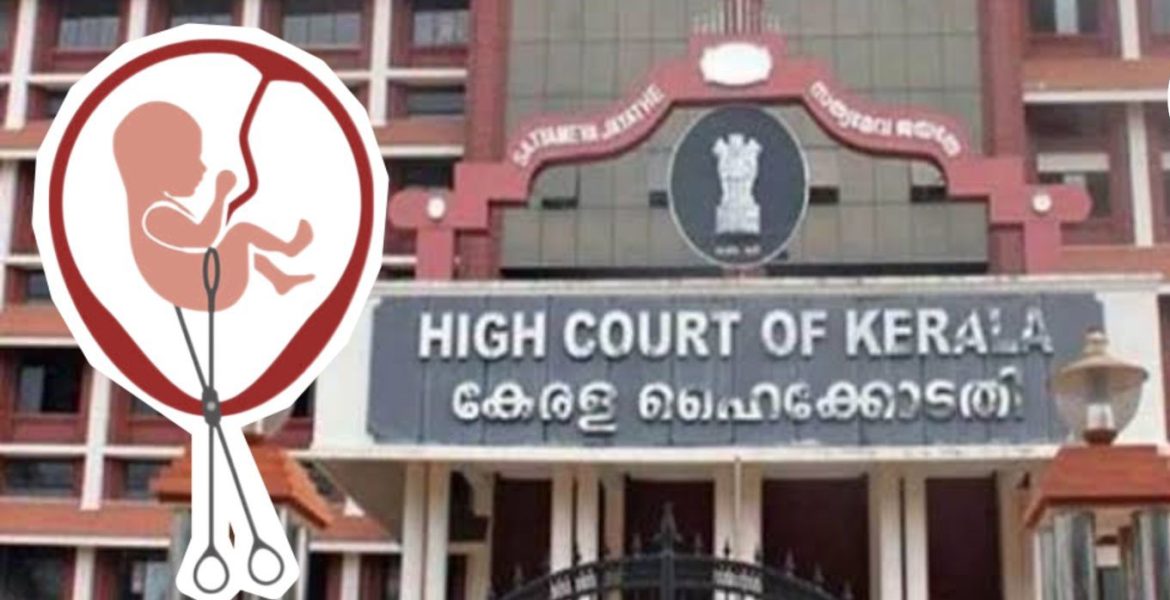Kerala High Court stated that rape survivors cannot be forced to give birth to the child of the rapist.
May 6, 2024 2024-07-05 10:19Kerala High Court stated that rape survivors cannot be forced to give birth to the child of the rapist.

Kerala High Court stated that rape survivors cannot be forced to give birth to the child of the rapist.
By
Jeevak Mukherjee
The Kerala High Court has affirmed the right of a 16-year-old rape survivor to terminate her 28-week pregnancy, underscoring the importance of preserving her dignity and autonomy. Justice Kauser Edappagath, presiding over the case, stated that “a rape victim cannot be forced to give birth to a child of a man who sexually assaulted her.” The court emphasized that denying such permission would force the victim into motherhood, violating her right to live with dignity under Article 21 of the Constitution.
The case involved a minor whose pregnancy resulted from sexual assault by a 19-year-old. Represented by her mother, the victim petitioned the court for a medical termination, citing severe mental and physical health concerns. The incident, which occurred while the victim was in the XIth standard, was reported by medical authorities, leading to the registration of a First Information Report (FIR). The accused was charged under Section 376 of the Indian Penal Code and sections of the Protection of Children from Sexual Offences (POCSO) Act and the Scheduled Castes and Scheduled Tribes (Prevention of Atrocities) Act.
The court highlighted the historical context of abortion laws in India, noting that the Medical Termination of Pregnancy Act (MTP Act) of 1971 legalized safe abortions under specific conditions, including rape. The MTP Act was amended in 2021, extending the permissible duration for abortions from 20 to 24 weeks for certain categories, such as rape survivors and minors. Beyond 24 weeks, termination is allowed only in cases of fetal anomalies. Justice Edappagath underscored that a woman’s right to make decisions about her body and reproductive functions is central to her fundamental rights to equality and privacy. These reproductive rights include the choice of whether and when to have children, the number of children, and access to safe and legal abortions. This constitutional right was affirmed by the Supreme Court in ‘K.S. Puttaswamy v. Union of India’ [(2017) 10 SCC 1].
In this case, the victim was found to be 27 weeks pregnant. Since the MTP Act allows termination beyond 24 weeks only in specific situations, the court exercised its extraordinary powers to grant permission, given the victim’s minor status and the rape circumstances. The medical board’s report indicated that continuing the pregnancy would harm the victim’s physical and mental health. The court authorized the medical termination, stressing that pregnancies from sexual assault cause significant trauma and distress. The court outlined measures to ensure the well-being of the victim and the fetus, including:
1. Immediate constitution of a medical team to perform the procedure.
2. Submission of an undertaking by the petitioner authorizing the surgery at her own risk.
3. Preservation of the fetus for medical tests related to the pending criminal case.
4. Provision of necessary assistance if the fetus is born alive, ensuring survival and optimal medical treatment.
5. State responsibility for the baby’s care under the Juvenile Justice (Care and Protection of Children) Act, 2015, if the petitioner declines responsibility.
6. Support from the Child Welfare Committee, Kannur District, during the hospital stay.
Case Title: Xxxxxxxxxx vs. Union of India, Kerela High Court
Citation: WP( C ) of 16366 of 2024









